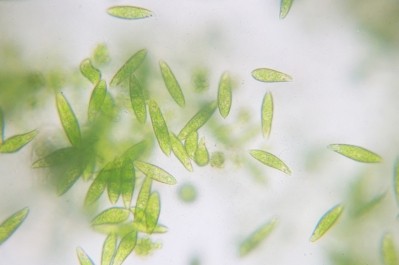EC make novel food specification changes to supplement ingredient and HMO

In documents recorded in the EC’s official journal, the lower figure of the oil’s saponification value is adjusted from the current 186mg potassium hydroxide per gram (KOH/g) to 179mg KOH/g.
Changes to the saponification value, which essentially measures the average molecular weight (or chain length) of all the fatty acids present, was requested by French firm Ovalie Innovation on the 17 May 2018.
“The applicant justifies the request by indicating that the change is necessary in order to take account of the variation in the saponification values in the course of the production process of the coriander seed oil during its refinement processing for use in food supplements,” the document stated.
Coriander seed oil, including the original fatty acid composition is known for its human health benefits that include its antibacterial and digestive prompting qualities.
Its main fatty acid petroselinique is proving particularly useful in nutricosmetic applications for the skin and the treatment of wrinkles, fine lines and excessive sweating (hyperhidrosis).
Further document details consider the proposed saponification value change of coriander seed oil from Coriandrum sativum do not alter the safety considerations that supported its authorisation.
Glycom’s 2′-fucosyllactose
The EC also detail changes to the specifications of the novel food 2′-fucosyllactose (2’FL) produced with a genetically modified strain of E.coli K-12.
Here, Danish firm Glycom made a request to the Commission on 16 August 2018 to change the specifications of the 2′-FL produced with the K-12.
The requested changes concern a decrease in the levels of the 2′-FL from 90 % to 83 %, and increases in the levels of the minor saccharides present in the novel food.
These saccharides include D-lactose (from 3% to 10%) and an increase in the levels of difucosyl-D-lactose (from 2% to 5%).
The proposed changes are due to the modifications in its manufacturing process that entail the replacement of the crystallisation purification step with a spray drying step currently used in the production of 2′-FL by E.coli strain BL21.
“This change in the purification step of the novel food production requires the increase in the use of D-lactose as the fermentation substrate in the production of 2′-FL that explains the slight decrease in the level of 2′-fucosyllactose,” the document said.
“It also explains the concomitant slight increases in the levels of D-lactose and of difucosyl-D-lactose in the final novel food.”
These proposed changes in the manufacturing are deemed necessary by Glycom in order to reduce the energy and environmental impact of the 2′-FL manufacturing process and to reduce the cost per unit produced.
DSM Nutritional Products Europe
In a final ruling, the EC authorises extending the use of Schizochytrium sp. (ATCC PTA-9695) oil as a novel food, changing its designation and specific labelling requirements.
The decision comes as a response to DSM Nutritional Products Europe’s request on the 10 September 2018, which asked to extend the use of the microalgae-based oil to fruit and vegetable purees.
Additionally, DSM requested the deletion of the mention of the strain ‘(ATCC PTA 9695)’ from the designation of the novel food as listed in the Union list and from the labelling of foods containing it.
“The applicant considers that the change of the designation and the labelling requirements for Schizochytrium sp. (ATCC PTA-9695) oil is necessary,” the document stated.
“This is because the indication of the strain ‘(ATCC PTA-9695)’ on the labelling of foods containing Schizochytrium sp. (ATCC PTA-9695) oil is not understandable nor relevant for consumers.”
There are currently four oils from Schizochytrium sp. currently authorised and listed in the Union list of novel foods.
However, the EC noted the Schizochytrium sp. (ATCC PTA-9695) oil was the only one for which the strain must be specified on the label.
The Commission added that therefore, the change of the designation and labelling of Schizochytrium sp. (ATCC PTA-9695) oil would ensure consistency in the designation and labelling of all oils from Schizochytrium sp. authorised as novel foods without having a negative impact on human health and consumer interests.
The designation of the novel food on the labelling of the foodstuffs is now permitted to be ‘Oil from the microalgae Schizochytriumsp.
Current maximum levels permitted for Docosahexaenoic acid (DHA)—the omega-3 fatty acid contained within the oil—for food supplements are 250 mg/day for the general population and 450 mg/day for pregnant and lactating women.
Meanwhile, foods intended to meet the expenditure of intense muscular effort, especially for sportsmen are limited to 200 milligrams (mg)/100 grams (g).















